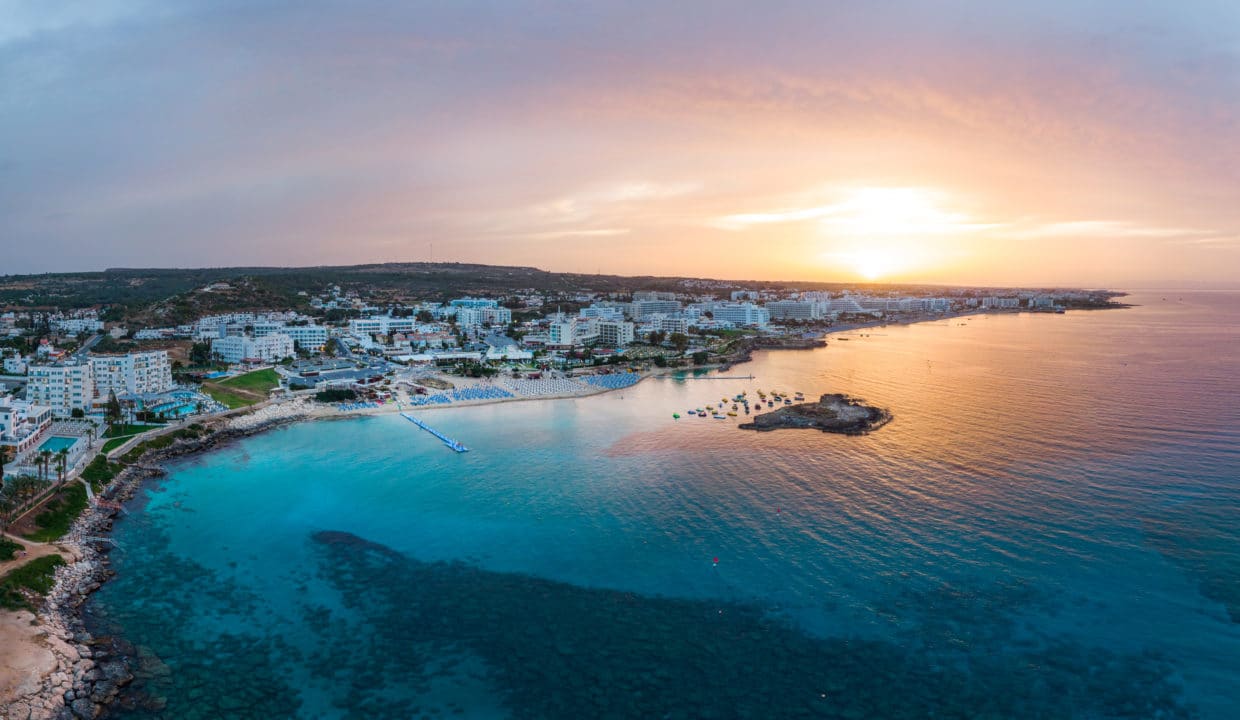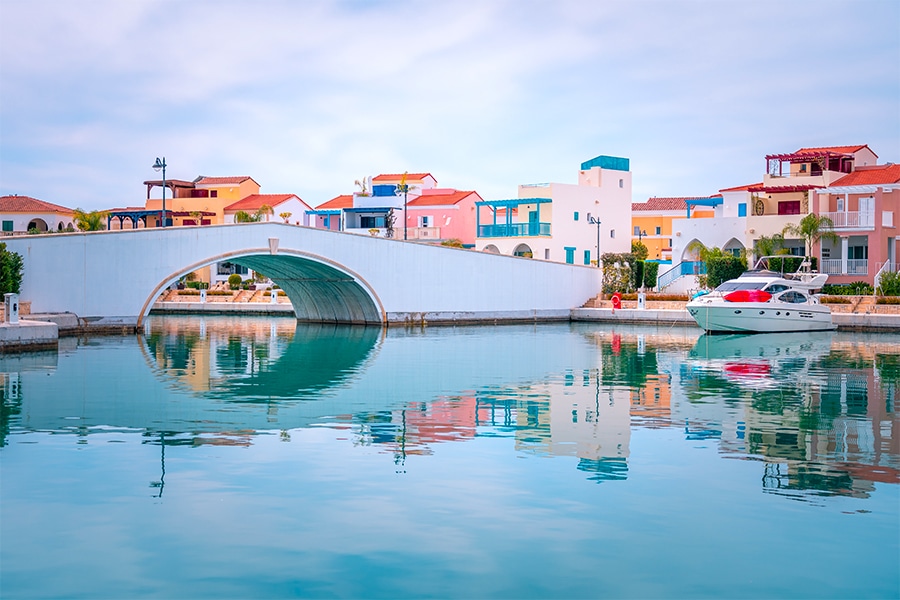
Buying a Holiday Home in Cyprus
if you’re believing of investing in a second property it can be tough to know where to start.. Not only do you wish to find the ideal building and setting but availability and other concerns such as future worth will also come under examination. When you’re shopping around, our guide will help you get your head around these options and supply a basis for.


Why do you want to buy a holiday home?
Your factors for purchasing a holiday home or 2nd home will have a fantastic impact on your option of place and property.
Many individuals desire a 2nd home to be ‘mixed-use’ i.e. they want to get a little rental earnings, but also utilize it on their own and their family and friends. Naturally if the worth increases with time, this is likewise a perk!
It can be challenging to find all of these elements in equivalent measures, so you will need to choose what is most essential to you – it will make the procedure much simpler.
Purchasing a holiday home for investment
You might have various concerns than if you are just looking for a retreat for your own use if you are looking for a rental financial investment. If gaining capital is your main interest, then it’s likely you will select a various destination than if it were for a retirement pad.
Where is the very best place to buy a holiday home?
Your choice ultimately depends upon what you want from the property, however being fond of and knowledgeable about the location certainly helps!
Gain access to is one of the most important factors when considering where to purchase a second home. If you want somewhere to get away at weekends, it might be a bad idea to buy in Australia. Devon, nevertheless might be more manageable! Check out transport services to the area, think of the roadway and rail systems and whether low cost airlines operate in the area.
Where you buy will depend upon what type of surroundings you are looking for, think about the night life, food, landscapes and so forth. And don’t forget the weather – some places have great weather all year round, but some have low seasons where the shops and restaurants shut down.
A method to use is to narrow your search area by looking at “ever reducing circles”. When you have actually picked the nation, you can begin to select the area, then the town, till you can pinpoint the particular place and focus your search there.
Purchasing a holiday home abroad.
Brits’ ten most popular foreign holiday home locations are spread throughout mainland Europe and Turkey, with Spain conveniently taking the top spot. Sunny climates and cervezas by the sea have their appeals, but if you’re buying abroad, take extra care over hidden expenses and consider asking a professional to help steer you through the process.
Is a holiday home a good investment?
A holiday home can be a great investment so long as you handle your property well and guarantee it sees plenty of use.
A report from Second Estates discovered that the typical Cyprus holiday resident earns ₤ 22,281 a year from blurting their property, but that can be even greater if you own a 2nd home in a popular holiday destination abroad.
The most successful holiday homeowner treat their property as a genuine company. You need to market your home, attend to your visitors, and keep the property comfy and tidy.
There are hidden expenses involved. They will take a cut of the earnings if you utilize a company to handle your holiday let. You’ll likewise desire to keep some money aside for damages and repair, and consider the cost of travel and taxes prior to you dedicate to purchasing. The financial benefit may not be your number one concern if you’re purchasing a holiday home for individual usage. Ensure you think about factors like taxes, travel costs and resale worth, but– most significantly– settle on a property that you like to go to.
What should you try to find when considering a holiday home?
Write a list of criteria that the property you are looking for need to include. Is a garden important? Do you need a garage? The number of bedrooms? Do you want a house or house? Make certain you are clear on which items are non-negotiable and which you ‘d be willing to compromise on. Also, think of the design of property. You might like the idea of a stone-built rural farmhouse, however will it provide you with the rental earnings you prefer? Perhaps the maintenance will be uncontrollable?
When is the finest time to purchase a holiday home?
You can spend months looking at market conditions and forecasts for increasing capital growth, but primarily, it has to be the best time for you. You may spend years waiting on the ‘correct time’ to purchase, and then understand you have actually missed the boat.
Lots of individuals either avoid buying in a decline because of the unpredictability of their financial investment, or simply can’t organize the financing, however frequently the most competitively priced properties can be found at such times. It sounds historic however obvious data shows that properties purchased the bottom of the marketplace make the most benefit, so in a purchasers market you have room to work out.
Can you reside in a holiday home throughout the year?
Cyprus law does not allow you to live in your holiday home for 12 months at a time. You need to decide what your permanent address is for council tax reasons. Your council tax is lower on a secondary home, so you could be a problem on local services if you were residing in a holiday home all year.
What are the hidden expenses of buying a holiday home?
When looking for your dream home far from home, you may not spend much time considering the continuous costs of maintaining a holiday home. It’s essential to aspect in these expenses, as they can add up quickly.
The cost of keeping your holiday home well kept.
While your holiday home insurance coverage will probably cover incidents resulting in unintentional damage, wear and tear will not be covered. This indicates that if you do want your home to be kept in pristine condition and it is being utilized lots, you’ll require to think about the expense of fresh coats of paint and deep cleansing, from time-to-time.
Holiday home security tips.
Any property that is less frequented than a primary home has a higher risk of break-in. This is one of the reasons why a standard home that is empty for more than one month will normally require vacant home insurance.
Renting your property can assist to decrease this risk, but includes other dangers such as key management, robbers having the ability to easily check the reoccuring of guests. With this in mind, it’ additional essential to take precautionary security steps when it comes to your holiday home. To avoid being not able make an effective claim in the event that the worst doe happen, make sure that you understand the ins and outs of your holiday home insurance policy – and if you’re not sure about anything, talk to an advisor.

10 Tips to deter burglars from your holiday home.
- Keep your garden well preserved.
- Set up timer switches outside your front door and any courses leading up to your house – this will postpone anybody from snooping around at night.
- Ask a neighbour to get rid of any mail.
- Think about installing a safe someplace hidden within the property.
- Ensure all doors and window feature suitable locking systems.
- Consider installing a clever lock on your front door to reduce to risk of keys going astray and falling into the incorrect hands.
- Think about installing an alarm system.
- Installing a motion detector inside your house to inform you to any movement at unanticipated times.
- Use wise lights or timer triggered lights to give the impression that someone is populating your house even when it’s empty.
- Do not leave any extra keys concealed outside the property.
Gardening suggestions for your holiday home.
When going to a potential holiday home, you might be attracted by a wonderful mature garden or a swimming pool, but it is very important not to forget the large ongoing expenses that accompany these features. Swimming swimming pools, for instance, are infamously expensive to preserve. If you’re renting out your holiday home, the exceptional people will pay for a pretty garden or swimming pool might negate these continuous expenses.
Depending upon the plants and terrain, you may wish to employ a gardener to preserve your garden weekly, fortnightly or even just monthly.
Swimming pool upkeep costs.
If your holiday home functions a swimming pool, these can come with relatively hefty upkeep charges that you’ll require to consider, including:
- Filter pump running expenses.
- Heating costs, if you’re choosing for a heated swimming pool.
- Water costs.
- Chemical upkeep costs.
The costs of leasing your holiday home.
If you’re planning to lease your holiday home, this will inevitably lead to more maintenance expenses than you ‘d experience otherwise – however on the other hand, can lead to a win-win situation in which your rental earnings covers general maintenance expenses – and more.
You’ll require to factor in these expenses too if you ‘d rather contract out the management of renting out your holiday home to an property management agency.
Just how much commission should you pay a holiday letting agent?
This can differ significantly depending upon where you holiday home is, however it is not unusual for a holiday letting representative to take up to 25% from each rental.
Although this might seem a large portion of your earnings, as soon as you’ve factored in the convenience and a (hopefully) guaranteed great service, you may find that this additional expenditure is worthwhile in the long term, as it’ll maximize your time and must lead to much better guest complete satisfaction and for that reason more bookings!
Holiday home leasing cleansing expenses.
Another factor to think about is the expense of keeping your home spick-and-span. You’ll need to utilize someone else to do the job if you’re not able to neat and clean your holiday home after each stay. When setting rental rates and anticipating the revenue you’ll make from renting out your holiday home, these costs will differ by area and it’s important to factor them in. Many short-stay rental platforms, such as Airbnb or Homestay allow you to pass these expenses directly to the visitor.

Holiday home finance and tax.
The financial side of owning a holiday home can be made complex and depends upon what you plan to do with the property. If you’re using it for your own enjoyment, there’ll be fewer financial implications, but there’s plenty of assist there if you’re running the place as a business.
Can you get a home loan on a holiday home?
A 2nd home mortgage may be best for you if you do not plan on letting the property out (or just expect to do so periodically). Be careful, though, that you will need a large deposit– generally 35%.
If buying abroad, you can either get your loan from a Cyprus bank if they have an existence in the location nation, or through a local lender.
You will require a holiday home mortgage if your holiday home is a service. These aren’t available at a lot of high street banks, and are instead provided by some expert building societies. Lenders will expect evidence that you can make a gross earnings of 125-130% of your home loan payment, so you need to do some research study on the local lettings market to know whether that’s realistic.
There are stringent rules about buy-to-let mortgages, meaning they aren’t constantly appropriate for holiday lets.
Tax on holiday lets.
As well as the typical council tax and stamp responsibility, holiday lettings are likewise subject to capital gains tax, although there is some tax relief on holiday rental properties.
Holiday let tax relief.
The bright side is that a supplied holiday let is a particular rental property classification and offers you certain tax advantages. The interest on your home loan will be an acceptable tax reduction, and there are allowances for energies, home furnishings and insurance.

